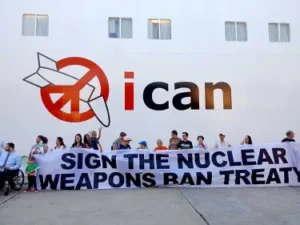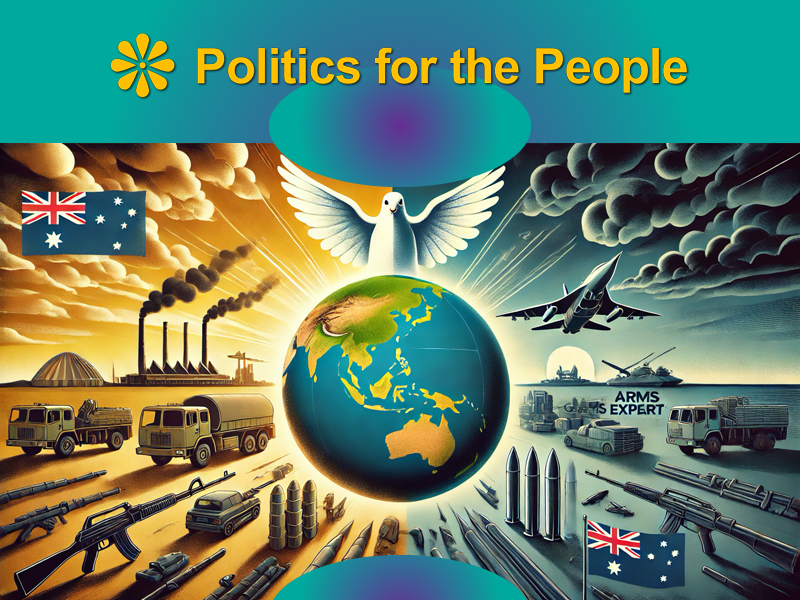Introduction to Australia’s Path to Peace and Neutrality
In a world fraught with conflicts and power struggles, Australia stands as a beacon of potential, advocating for peace, neutrality, and non-nuclear proliferation. With a history of strong alliances yet a commitment to diplomacy, Australia is uniquely positioned to lead by example in the quest for global harmony. This exploration delves into Australia’s potential to redefine its global role, fostering an environment where diplomacy prevails, and peace is a priority.
Promoting Peaceful Neutrality
The Role of Neutrality in Enhancing Australia’s Global Stance
Historically, Australia has been a robust ally of the United States, often aligning with its military strategies. Yet, the nation also has a rich history of advocating for peace and taking diplomatic routes to resolve conflicts. By emphasizing neutrality, Australia could strengthen its role as an intermediary, capable of bridging gaps between conflicting nations. This shift would not only elevate Australia’s stature on the world stage but also contribute significantly to preventing the escalation of regional disputes into full-blown conflicts.
Benefits of a Neutral Stance
– Diplomatic Influence: Neutrality could enhance Australia’s diplomatic influence, enabling it to host and mediate peace talks, thus becoming a pivotal player in global diplomacy.
– Enhanced Global Reputation: As a neutral entity, Australia could be viewed as a trustworthy and unbiased mediator, attracting international respect and credibility.
Advocating for a Non-Nuclear World
Australia’s Leadership in Nuclear Disarmament

In an era where the threat of nuclear weapons is still a significant global concern, Australia’s voice against nuclear proliferation is vital. By advocating for a non-nuclear world and adhering to the Treaty on the Non-Proliferation of nuclear weapons (NPT), Australia reinforces its commitment to global safety and security. This stance not only supports regional peace but also encourages other nations to consider the long-term benefits of disarmament.
Steps to Strengthen Disarmament Efforts
– Active Participation in International Forums: Engaging more actively in international disarmament forums to lead discussions and push for robust anti-proliferation treaties.
– Educational Campaigns: Launching nationwide campaigns to educate the public and policymakers about the risks of nuclear proliferation and the benefits of disarmament.
Balancing Relationships and Sovereignty
Navigating Friendships While Maintaining Independence
Australia’s relationship with the United States is built on shared democratic values and strategic interests. However, keeping an independent stance on global issues is crucial to uphold Australia’s sovereignty. This involves selectively taking part in international coalitions and initiatives that align with Australia’s values of peace and neutrality, ensuring that these actions support long-term national interests.
Strategies for Balanced Alliances
– Selective Engagement: Choosing engagements that align with Australia’s national interests and global peace initiatives.
– Promoting Mutual Respect: Fostering a relationship with the U.S. that respects both nations’ sovereignty and promotes open dialogue on contentious issues.
Overcoming Challenges, Embracing Opportunities
The Path Forward: Obstacles and Potential Gains
Transitioning towards a role as a global peace advocate is laden with challenges, such as potential pushback from traditional allies and internal political factions favouring a more militaristic approach. Nonetheless, the opportunities for enhancing Australia’s international relations and promoting global stability are immense.
Navigating Challenges
– Diplomatic Navigation: Carefully managing relationships with global powers while advocating for peace and neutrality.
– Internal Consensus: Building a consensus within domestic politics to support a shift towards peace advocacy.
Conclusion
Australia is poised to become a paragon of peace and neutrality on the international stage. By fostering principles of diplomacy and non-aggression, Australia can influence other nations to prioritize harmony and cooperation. This commitment to global peace not only strengthens Australia’s international standing but also inspires a worldwide movement towards a more harmonious future.
Engaging Questions and Call to Action
– How can Australia further promote its role as a leader in global peace?
– What steps should Australia take to balance its alliances while promoting neutrality?
Let us know your thoughts and join the conversation on how Australia can lead the charge towards a peaceful future. Share your views, and let’s explore together how diplomacy can triumph over discord.

